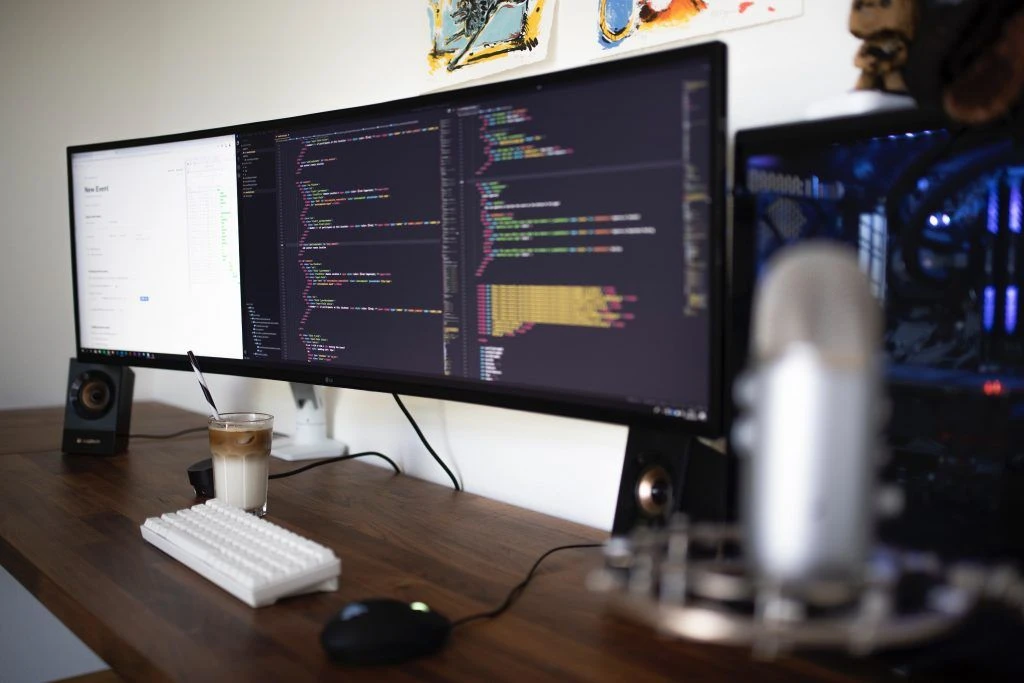
Players in the shipping industry that are not constantly updating their businesses with technological innovation will not last for very long.
In the freight industry, the need for innovation is only further compounded after decades of stagnation. Shipping one container internationally can still require 30 people with 200 interactions. For buyers and sellers in the world of international trade, it is no wonder that they’re seeking new technologies to streamline their processes.
Here are five technologies that might help you get started on innovating your business to remain competitive in shipping, whether as a BCO or a freight forwarder.
- The internet of things (IoT)
- Digitalizing processes (BlueX)
- Blockchain Integration
- Cloud-based Solutions
- Cybersecurity

The internet of things is all the rage nowadays. These internet-enabled physical devices collect and share real-time information to customers and businesses. There are many benefits of implementing IoT integration too:
- Reducing operational costs
- Gaining consumer behavior insights
- Improving productivity and efficiency
- Improving customer service
- Improving safety in the workplace
The freight industry massively benefits from these internet of things, and according to Dzone, there is no shortage of examples of how IoT are improving logistics and transportation:
- Improved fleet management: tracking maintenance costs, fuel consumption, regulatory compliance, and accident responses.
- Utilizing smart inventory management: gaining real-time information from warehouses to distribution, you can reduce the cost of inventory and improve the predictive maintenance
- Optimal Asset Utilization: Tracking the locations, statuses, and information about physical assets in transit.
- Geofencing: This cloud-based solution allows tracking of cargo to receive alerts on deviations from shipping routes.
Perhaps one of the biggest concerns for buyers and sellers in the freight industry is tracking cargo. From BlueX SEO research, we found that roughly 30,800 people are searching on Google for “Maersk tracking” and “Evergreen tracking” each month, showcasing the importance of cargo tracking.
IoT enables real-time tracking of cargo in the supply chain with end-to-end visibility. By using IoT sensors that are connected online with an application through a platform, it is easier to manage the status of a shipment and mitigate uncertainty. A big plus is that IoT container tracking is cheaper than GPS-based solutions.

One of the most disruptive and interesting technological innovations in the freight industry has to be digitalization. Why? Digitalization is upgrading business models in the industry to become digitally savvy, streamlined, and lean.
Digitalization is all about innovating freight business models by transitioning them into becoming digitalized. With an estimated value of $1.2 billion, digitalization makes freight bookings and offerings more seamless.
Digitalizing your business can be as simple as; 1) creating a digital platform, 2) tapping into inaccessible sources online, 3) creating digital products and services, 4) re-bundling products and services (eProducts and eServices), 5) creating digital distribution channels, 6) or developing cost efficiency through automation.
Our platform, BlueX, is an example of a digital platform that taps into previously inaccessible rates and space from carriers for shippers and freight forwarders. Our platform offers a Freight Commerce Platform with the following benefits:
- Consolidating bookings in one digital space
- Faster bookings in minutes, not days
- Access to tier 1 rates
- Streamlined payment capabilities
Integrating BlueX into your digital freight strategy will enable you to get tier 1 rates, space, and information directly from some of the world’s largest carriers. However, not every digital strategy will require our integration, and it is important to find the right type of strategy for your business's needs.

Nowhere is blockchain more applicable than in the freight industry. While many people only associate blockchain with the Bitcoin cryptocurrency, the application of this innovation has far-reaching consequences across a myriad of sectors.
In simple terms, blockchain is like a digital ledger, with each entry being a block that is connected linearly to one before and after it. This link of blocks is shared through a P2P network that ensures information is both trustworthy and is extremely difficult to tamper with.
The best way to imagine blockchain is to think of it as a digital ledger that millions of people own. If one ledger on a computer changes, the other ledgers must verify this, preventing tampering. According to IBM, blockchain benefits include:
- Greater transparency in all transactions through a digital ledger
- Enhanced security through encrypted links and the P2P proof of work mechanism
- Improved traceability of records, assets, and transaction data
- Increased efficiency and speed by automating processes
- Reduced costs by removing third-party intermediaries
Blockchain technology is also beginning to shake up the freight industry, with Marine Insights reporting on marine blockchain insurance, shipping transactions on Ethereum blockchain, and the first bill of lading being issued through a blockchain solution.
As a cost-saving and secure means of transferring data and transactions, blockchain technology looks like it will become a crucial part of how we will be doing business in the future.

Artificial intelligence (AI) is one of the most exciting technology trends in general, and AI integration in the freight industry is an exciting prospect.
A lot of people have a vague idea of what is AI, but it is not that difficult to get a grasp of this technological behemoth. AI is a branch of computer science that focuses on creating smart machines to perform tasks that would usually require human intelligence.
There is sometimes confusion between the concepts of AI and machine learning. AI is an umbrella term under which machine learning is only a single branch. Some applications of AI in business to watch out for, according to Adext AI, include:
- Virtual agents
- Machine learning platforms
- Decision management
- Deep learning platforms
- Robotic processes automation
- Digital twin/AI modeling
- Cybersecurity
- Compliance
- Content creation
- Peer-to-peer networks
AI has many applications for international trade. What makes it so appealing is that instead of simply plugging in boundaries, machines are fed information and are able to construct their own rules and parameters based on their innate intelligence. According to Reveel, AI will influence international trade by:
- Accurately predicting shipping times
- Improving shipping speed
- Mitigating inefficiencies and optimizing maintenance
- Mimicking human perception to make decisions
- Improved security
- Continued transformation of the freight industry
With an ever-growing list of AI logistics startups, this technological solution may be part of your operations sooner than you think.

Cybersecurity strategies are essential for businesses of all sizes. This digital line of defense is not only about protecting businesses, but also their customers, and their data from increasing cybersecurity attacks.
Cyberattacks are devastating, and businesses can be levied massive fines for failing to protect their customers. According to CSO, an expert on cybersecurity, cyberattacks have cost companies $1.23 billion, and some of these include:
- 2018 - Facebook fined $650,000
- 2017 - Equifax fined $575 Million
- 2016 - Uber fined $150 million
- 2013 - Yahoo fined $85 million
As of the first six months of 2019, at least 4.1 billion records in the first six months were exposed by data breaches, with 67% of all these breaches coming from businesses.
Shipping has also fallen victim to cyberattacks. In June 2017, Maersk underwent massive disruptions to their operations, with 15% of international shipping being affected. Despite a fast and effective response by Maersk, the cyber attack caused a loss of $300 million to the company.
As we discussed previously, blockchain is advantageous for cybersecurity, and when correctly implemented, this growing technology can create frontline cybersecurity that is hard to crack. Likewise, AI machine learning was pointed out by CSO and others as being fundamental to the future of cybersecurity.
No matter what cybersecurity solution you decide to implement, it needs to be able to protect your business and customers. With new threats constantly emerging, it is important to stay up to date with your cybersecurity.
It is essential that all players in the freight industry, big or small, pay attention to disruptive technology trends. The volatility in the markets as of 2019 necessitates innovation across all aspects of global trade and supply chains.
With tariff wars, a slowing down in manufacturing output, IMO 2020 sulfur surcharges, and shifting global power, everyone in the industry is now turning to new solutions for profitability in the short to long-term. Freight technology might not be the only factor you need to consider to be successful, but as part of a holistic approach to your operations, it can be integral to your success.
As we mentioned, digitalization is an exciting strategy to consider, and we can help you to get started on digitalizing your business. You can learn more about what we at BlueX have to offer here or drop us a message at info@bluextrade.com.